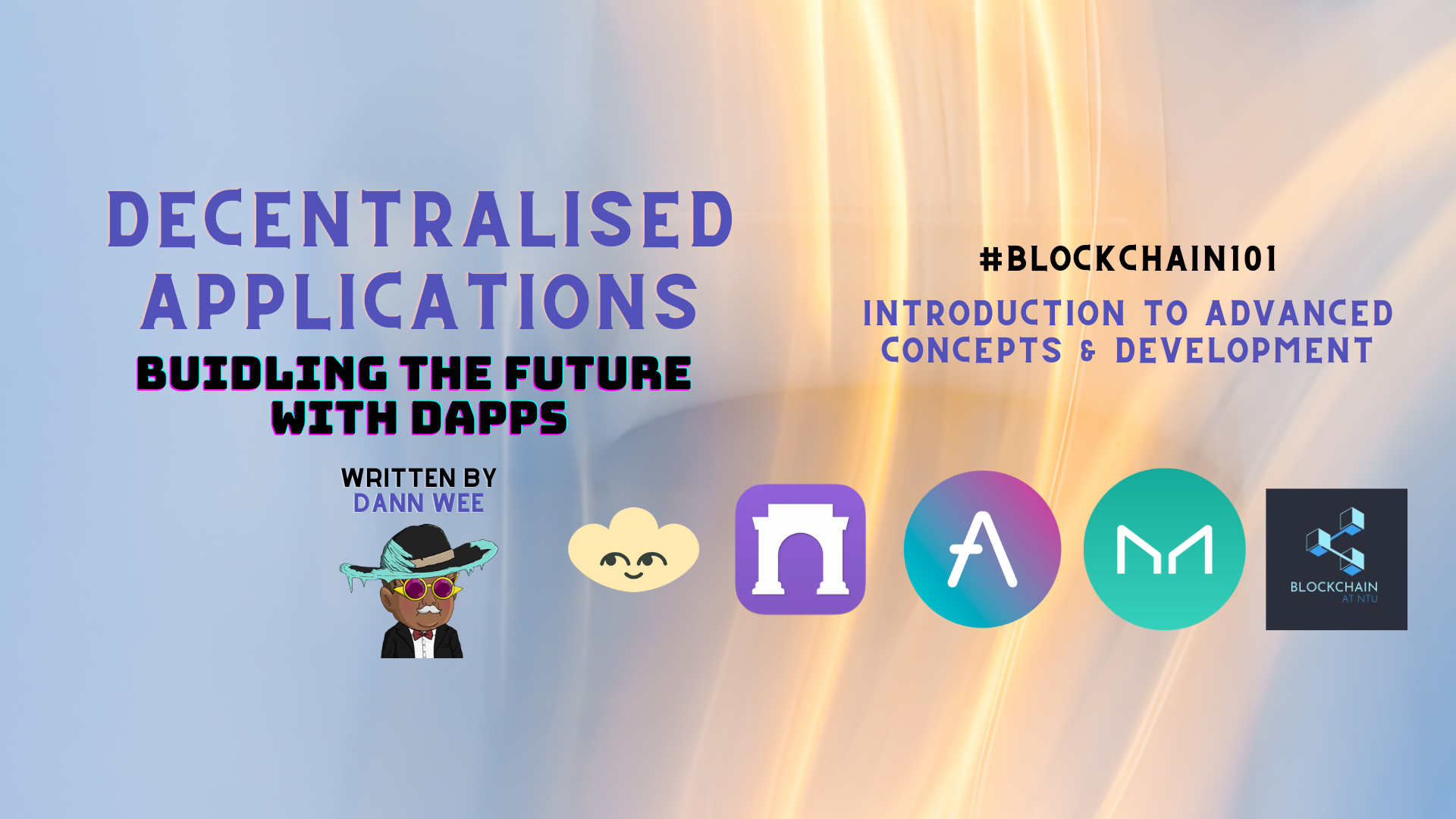
Blockchain 101 #14: Decentralised Applications: Building the Future with dApps
Explores decentralised applications (dApps) and their potential to disrupt traditional centralised applications.
In the ever-evolving landscape of technology, decentralised applications, or dApps, have emerged as a revolutionary force poised to disrupt traditional centralised applications. As blockchain technology gains prominence, the decentralised nature of dApps introduces a paradigm shift that promises increased security, transparency, and efficiency. This article delves into the world of decentralised applications, exploring their potential to reshape industries and redefine the future of digital innovation.
Understanding Decentralised Applications

Decentralised applications, at their core, operate on blockchain technology, a distributed ledger that records transactions across a network of computers. Unlike centralised applications that rely on a single point of control, dApps leverage the decentralised and tamper-resistant nature of blockchain, ensuring that no single entity has undue influence or control over the entire system.
In other words, all data collected from dApps are stored on-chain, and not controlled by a central entity.
One key feature of dApps is their open-source architecture, promoting collaboration and transparency. Smart contracts further enhance the autonomy of dApps, enabling trustless and secure transactions.
The Disruptive Potential of dApps

The landscape of digital applications is undergoing a profound transformation with the advent of dApps. These innovative software solutions are reshaping the traditional paradigms of application development and usage as we speak, hence ushering in a new disruptive era marked by increased efficiency, security, and transparency.
There are several disruptive potentials of dApps, namely:
Eliminating Intermediaries: Traditional applications often involve intermediaries, such as banks or centralised platforms, to facilitate transactions. dApps, however, operate on peer-to-peer networks, removing the need for intermediaries and reducing associated costs. This has profound implications for financial services, supply chain management, and various other industries, potentially democratising access and fostering financial inclusion.
Enhancing Security: Security breaches and data compromises are persistent challenges in the digital age. Decentralised applications, built on the principles of cryptography and distributed ledgers, offer enhanced security. The decentralised nature of these applications reduces the vulnerability to single points of failure, making them more resistant to hacking and data breaches.
Transparency and Trust: The transparency inherent in blockchain technology ensures that all transactions are recorded and visible to participants. This transparency builds trust among users and eliminates the need for blind faith in centralised entities. As a result, dApps have the potential to transform industries where trust is paramount, such as healthcare, by securely managing patient records and ensuring data integrity.
Real-world Applications of dApps

Decentralised Applications (dApps) are actively addressing real-world challenges and transforming industries. In an era dominated by digital advancements, users are increasingly concerned about the handling of their data in conventional Web2 online services. Many aspire to exert greater control over their personal information online. This is precisely where Web3 dApps can wield a profound impact.
Finance and Banking: Cryptocurrencies and blockchain have already made significant inroads into the financial sector. Decentralised finance (DeFi) applications, a subset of dApps, offer financial services without traditional intermediaries, allowing users to borrow, lend, and trade in a trustless environment. This could reshape the future of banking, providing financial services to the unbanked and underbanked populations.
Some popular DeFi dApps available out there are MakerDAO, a decentralised stablecoin lending platform, and Aave, an Open Source Protocol to create Non-Custodial Liquidity Markets that earns interest based on supplying and borrowing assets
Personal Data Management: Traditional identity management systems are susceptible to security breaches. Decentralised identity management dApps provide users with greater control over their personal information, allowing them to share only the necessary details with trusted parties. This could revolutionise how we approach digital identity in an era where data privacy is a growing concern.
Currently, there are some Web3 Decentralised Social Media Platforms that are competing against Web2 giants such as Facebook, Instagram and Twitter.
Warpcast, a dApp client of Farcaster, is a decentralised social network powered by blockchain technology. Another essential example is Lens Protocol by Avara, a social networking product based on blockchain technology as well.

With Personal Data Management being a very hot topic nowadays, there is this new terminology called Zero-Knowledge (ZK) which is a method by which one party can prove to another party that a given statement is true while avoiding conveying to the verifier any information beyond the mere fact of the statement's truth. (This topic will definitely be covered in another article 😍).
Challenges and Future Prospects

While the potential of decentralised applications is immense, challenges remain. Scalability, user experience, and regulatory uncertainties are hurdles that the industry must address. However, ongoing technological advancements and collaborative efforts within the blockchain community are gradually overcoming these challenges.
As the development of dApps continues, the future looks promising. These applications have the potential to redefine the digital landscape, offering a more secure, transparent, and inclusive environment for users and businesses alike.
Embracing the Future of Innovation

Decentralised applications represent a seismic shift in the way we conceptualise and interact with digital platforms. By leveraging the power of blockchain, dApps offer a glimpse into a future where trust, transparency, and security are paramount. As industries across the globe explore the possibilities presented by decentralised applications, we stand at the precipice of a technological revolution that could reshape the foundations of our digital world. It's not merely about disrupting the status quo; it's about building a future where innovation knows no bounds, and decentralised applications stand at the forefront of this transformative journey.

We, from Blockchain at NTU, thank you for being part of this enlightening journey and extend a warm welcome to the enthralling universe of blockchain!
NOTE: Articles written by Blockchain at NTU ARE NOT FINANCIAL ADVICE!
Written By:
Dann Wee
Research Director of Blockchain at NTU Club AY23/24
Social Media Links:
| Facebook | Instagram | Twitter | Linkedin | Discord |
| Telegram Group | Telegram Channel |

